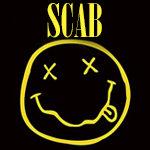
Concrete
In Chip and Dan Heath’s book, Made To Stick, they share the acronym of SUCCES. Simple, unexpected, credible, concrete, emotional and story. This is the yardstick by which we measure an ideas potential to take hold. I always found concrete to be the trickier category. The novice could easily fudge concrete and credibility to be the same thing. My understanding is that the concrete quality makes an idea memorable, it is sensory and real.
Like a lot of people, I’ve always considered concrete to be a stifling material. And so, I thought built up urban environments don’t necessary lend themselves as a great space to think clearly. As a rule, I’d say I preferring wide open and natural surroundings. I’m currently in central Manchester and although it’s a concrete jungle, local parks and green spaces are nuzzled up amongst the Victorian buildings and the red rose of Lancashire is in bloom in the flower beds on the University campus.
A brisk walk into the metropolis to shift the cobwebs is as good as any country hike. Taking on Marc’s suggestion that we routinely consume culture, so that we collect dots in order to connect the dots. I went to the recently opened South Asia Gallery at the Manchester Museum. There were arresting pieces of art on display and vibrant music was being played. But it was a conversation that I struck up with one of the museum staff that helped me collect this particular dot. A discussion about calligraphy led to them mentioning concrete poetry. An art form where a poem is written in such a way that it takes the shape of an image. Paradoxically, in blurring the lines between the word the image, concrete poetry makes the meaning clearer.
I came to the museum to look at artefacts and I got a lesson in poetry. The last time I visited was way back in high school, when my class mates and I were listening to gangster rap. The term concrete poetry and the nostalgia of school trips from yesteryear made me think of a line I remembered from West Coast rap icon, Tupac.
Did you hear about the rose that grew from a crack in the concrete? Proving nature’s law is wrong. It learned to walk without feet. Funny it seems, but by keeping its dreams, it learned to breathe fresh air. Long live the rose that grew from concrete, when no one else even cared.
Then I thought about William Shakespeare and A-Level English.
What’s in a name? That which we call a rose by any other name would smell as sweet.
And then I thought about medieval Persian poetry from Rumi.
I will soothe you and I will heal you. I will bring you roses. I too have been covered in thorns.
Through love thorns become roses.
Marc’s right, get out there collect and connect the dots. Culture, like the scent of a rose even permeates through concrete.












